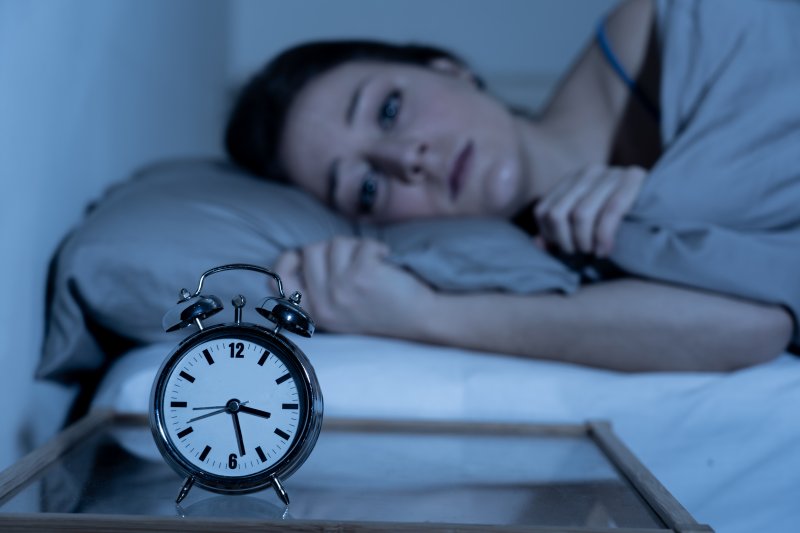
Living with anxiety and sleep apnea can be a debilitating and often, disheartening experience. While closing your eyes and letting your mind dream often helps to alleviate the concerns and worries you’re experiencing, the inability to achieve a full night’s rest can make day-to-day life much more challenging. Fortunately, a sleep dentist is here to explain the connection between the two disorders and what you can do to get the help you need.
When Anxiety and Sleep Apnea Collide
For decades, researchers have been looking at the link between sleep apnea and anxiety. Because the two often go hand-in-hand, the evidence continues to mount that these two disorders share many of the same side effects (i.e., fatigue, insomnia, etc.).
When suffering from sleep apnea, you will often find that your brain must trigger your body to wake up and breathe. This is especially true for individuals who suffer from obstructive sleep apnea or central sleep apnea. Because the body is jolted away, one or multiple times each night, you will begin to experience chronic fatigue, which makes dealing with stress much more difficult.
If your anxiety goes untreated for a prolonged period, it will eventually have a negative effect on your sleep patterns. And if you cannot cope with the stress you’re experiencing, high blood pressure and panic attacks will likely follow. This can all lead to serious problems if you suffer from sleep apnea. Each time your body is jolted away, your blood pressure rises, increasing your risk for a panic attack, heart attack, or stroke.
What You Can Do to Get Help
The first step you must take is to recognize the problem and opt to seek help. Meeting with a sleep dentist can put you on the right path to addressing your issues and achieving better rest. A thorough sleep study to obtain a formal diagnosis is necessary to move forward with treatment, which can involve a continuous positive airway pressure device (CPAP) or oral appliance therapy.
Both options are known to produce successful results in patients living with obstructive sleep apnea, but what you will find through therapy is that you will begin to sleep through the night, which is essential when dealing with anxiety. Instead of being interrupted multiple or hundreds of times each night, you’ll complete a regular sleep cycle, allowing you to get the rest you need and wake feeling more refreshed.
As a result, this will help to improve your mood and cause your brain and body to better handle stressful situations. You should also seek ways to handle your anxiety, however, as this, too, can make falling and staying asleep more readily possible. Going for a walk, talking to a therapist, doing yoga, or reading a book are all ways to create a more positive attitude and reduce your stress.
If you’re suffering from anxiety and sleep apnea, don’t let this unhealthy cycle continue. Find a local sleep dentist who can provide the help you need to start living a healthier life.
About the Author
When anxiety keeps you up at night, it can negatively impact your overall health well-being. This is where Dr. Shelley Shults comes in. As a board-certified registered nurse, general dentist, family nurse practitioner, and dental sleep medicine practitioner, she graduated from The Ohio State University with a Doctor of Dental Surgery degree before receiving her MATRx certification in sleep apnea in 2013. Dr. Shults offers a variety of solutions to help her patients achieve better sleep and improved health. To learn more, contact us at (614) 681-8593.
